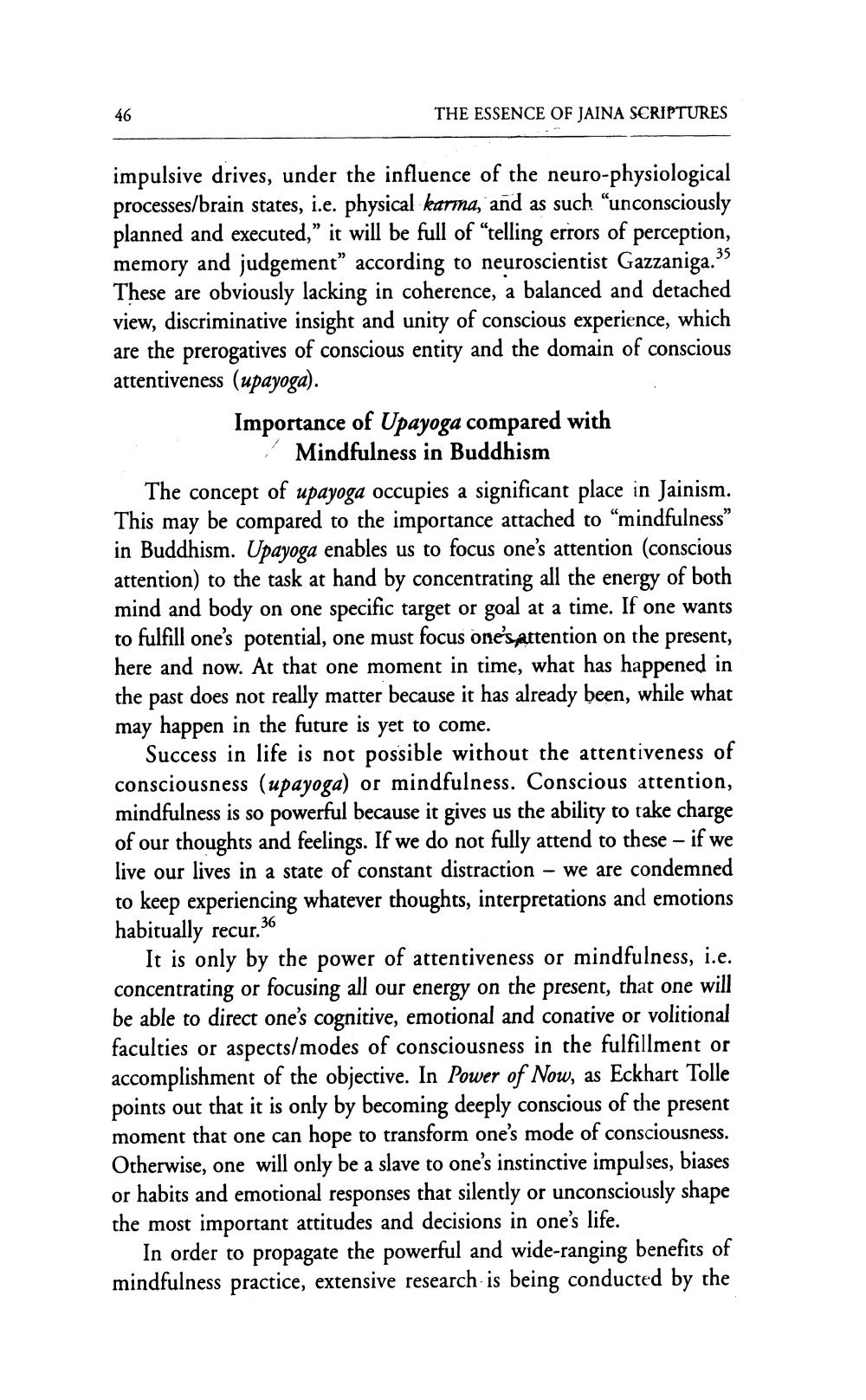________________
THE ESSENCE OF JAINA SCRIPTURES
impulsive drives, under the influence of the neuro-physiological processes/brain states, i.e. physical karma, and as such "unconsciously planned and executed,” it will be full of “telling errors of perception, memory and judgement” according to neuroscientist Gazzaniga.” These are obviously lacking in coherence, a balanced and detached view, discriminative insight and unity of conscious experience, which are the prerogatives of conscious entity and the domain of conscious attentiveness (upayoga).
Importance of Upayoga compared with
Mindfulness in Buddhism The concept of upayoga occupies a significant place in Jainism. This may be compared to the importance attached to “mindfulness” in Buddhism. Upayoga enables us to focus one's attention (conscious attention) to the task at hand by concentrating all the energy of both mind and body on one specific target or goal at a time. If one wants to fulfill one's potential, one must focus one's attention on the present, here and now. At that one moment in time, what has happened in the past does not really matter because it has already been, while what may happen in the future is yet to come.
Success in life is not possible without the attentiveness of consciousness (upayoga) or mindfulness. Conscious attention, mindfulness is so powerful because it gives us the ability to take charge of our thoughts and feelings. If we do not fully attend to these – if we live our lives in a state of constant distraction - we are condemned to keep experiencing whatever thoughts, interpretations and emotions habitually recur. 36
It is only by the power of attentiveness or mindfulness, i.e. concentrating or focusing all our energy on the present, that one will be able to direct one's cognitive, emotional and conative or volitional faculties or aspects/modes of consciousness in the fulfillment or accomplishment of the objective. In Power of Now, as Eckhart Tolle points out that it is only by becoming deeply conscious of the present moment that one can hope to transform one's mode of consciousness. Otherwise, one will only be a slave to one's instinctive impulses, biases or habits and emotional responses that silently or unconsciously shape the most important attitudes and decisions in one's life.
In order to propagate the powerful and wide-ranging benefits of mindfulness practice, extensive research is being conducted by the




